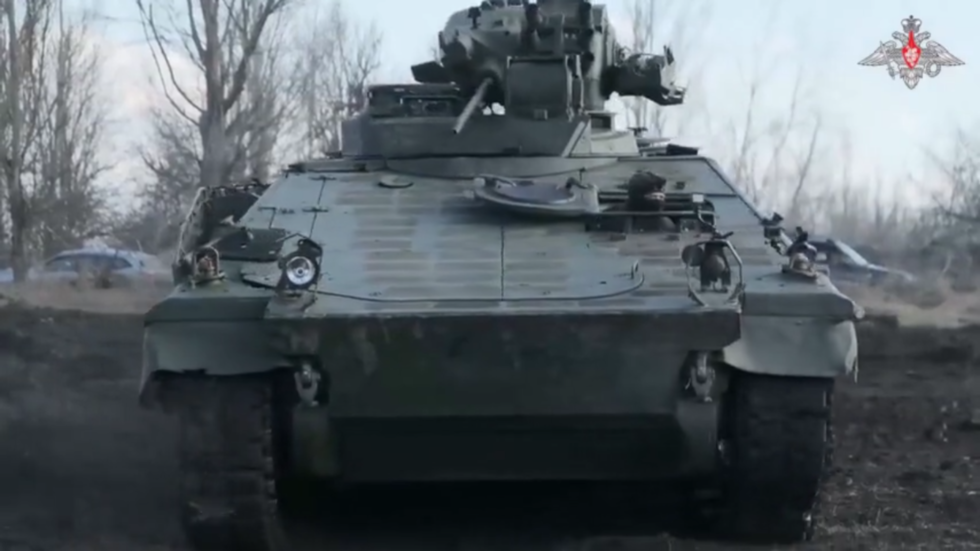
The Marder armored vehicle was found to be too heavy and poorly designed to operate in a muddy environment Source: Russian Defense Ministry
The Russian Defense Ministry has criticized the design of the German Marder infantry fighting vehicle, after repairing and field-testing a piece of military hardware captured from the Ukrainian forces.
Germany has sent 90 of the Rheinmetall-produced Marder 1A3 IFVs to Ukraine, with the delivery of 30 more pending. One of the vehicles was seized virtually intact near the former stronghold of Avdeevka, which Russia liberated in mid-February, the military reported last week.
A new video released by the ministry on Monday showcases the German vehicle after repairs by Russian troops. The Marder’s engine-cooling and fuel systems were damaged by shrapnel and had to be patched up, but otherwise the vehicle was in good condition, a maintenance specialist said, explaining how the weapons platform was put back into shape.
The Marder appeared relatively unused, with its odometer showing the traveled distance of under 500km, although the instrument was damaged, so the figure may not be accurate. The IFV had almost all of its munitions loaded, when Russian soldiers took it as a trophy.
Field testing of the restored Marder has confirmed the Russian military’s observations that it is not well-suited for the battlefield conditions typical in the Ukraine conflict. The vehicle weighs over 30 tons, while its tracks have built-in rubber pads to protect roads, unlike Soviet and Russian-designed counterparts that have special grips to improve traction.
“Our tests have shown poor maneuverability across mud,” the specialist said of the German vehicle, noting that it is likely to have problems in combat.
READ MORE: Russia captures German-donated Marder IFV in ‘almost perfect’ condition (VIDEO)
The Marder was partially adapted for Ukrainian operators, as evidenced by the translation of some of the labels in its cabin into Ukrainian, shown in the video.




